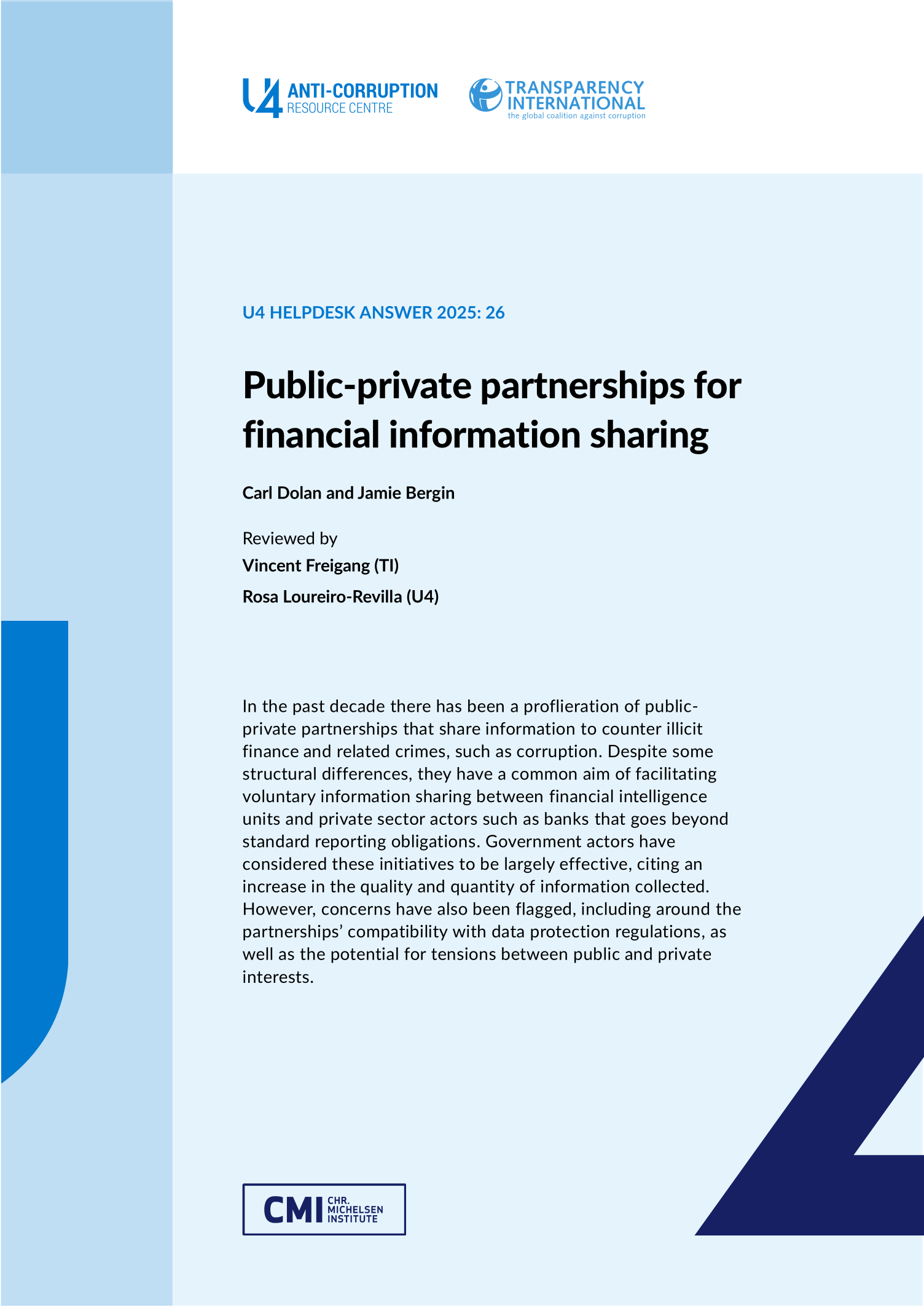Main points
- Over the last ten years, there has been a rapid proliferation of public-private partnerships for financial information sharing (FISPs). These aim to facilitate enhanced information sharing between national authorities such as financial intelligence units (FIUs) and private sector actors such as banks. This information is shared with the aim of improving the prevention and detection of illicit finance and related crimes such as corruption and money laundering.
- Under FISPs, private sector actors typically go beyond their standard reporting obligations and exchange, on a voluntary basis, information with FIUs and law enforcement actors. This may take the form of strategic information that is generic in nature and serves to improve compliance, and tactical information which typically contains personal data on suspicious actors and their financial activities.
- The structure, operations and mandates of FISPs can vary considerably. Due to resourcing limitations, many operate at a small scale and face technological and legal constraints in sharing and processing intelligence. Most current FISPs focus on domestic cooperation and tend not to resolve obstacles to sharing information across borders.
- While there is a lack of independent assessments, some internal reviews of FISPs conclude they substantially increase the volume of actionable financial intelligence national bodies can use to pursue investigations. For example, between 2015 and 2025, the UK’s JMLIT+ reportedly identified 10,700 accounts involved in suspicious activity which had previously not been known to law enforcement. National authorities have also cited case examples where FISPs helped them uncover large-scale illicit finance schemes.
- Several challenges and criticisms have been raised about FISPs. These include doubts about whether or not they comply with data protection legislation, especially where information shared contains personal data. Some commentators have also argued that the added value of FISPs as a voluntary cooperation mechanism over existing AML regulations is unclear.
- Adherents claim FISPs work by balancing law enforcement’s desire to enhance AML supervision with private sector actors’ desire to minimise the damage illicit finance can cause to their commercial interests. However, some commentators have remarked that the motivation of private actors may not always be well intentioned and they may, for example, participate in FISPs with a view to reducing the risk that they themselves face in enforcement actions for facilitating financial crime.



